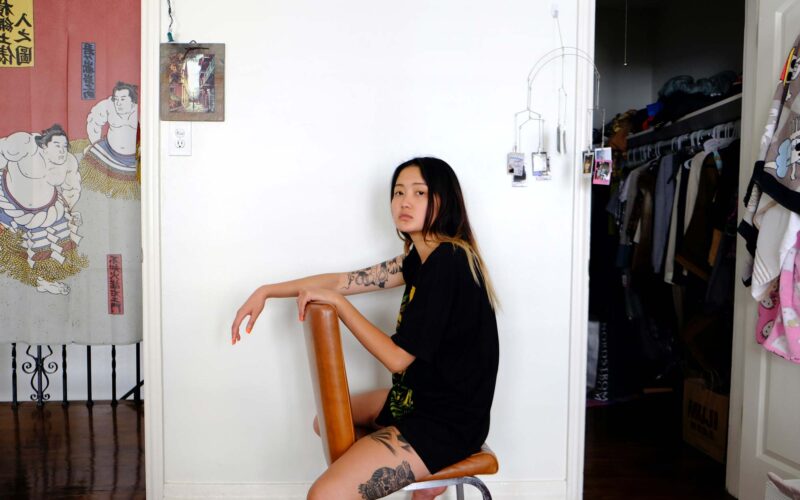As a high school student navigating the complexities of being an Asian American teenager, I’ve thought about this a lot. The model minority myth, often seen as a badge of honor, casts a long and complicated shadow over our experiences. Today, I want to share a more reflective analysis of how this stereotype affects us, moving beyond frustration to a deeper understanding of its implications.
The myth suggests that all Asian Americans are academically gifted, quiet and submissive, and forever foreigners in our own country. While it might seem flattering to be associated with success, the reality is far more nuanced and sometimes painful.
The Academic Stereotype and Its Pressure
The expectation that we excel in school, particularly in subjects like math and science, places an enormous amount of pressure on us. It’s not just about the natural desire to do well; it’s about living up to an image that’s been crafted without our consent. This stereotype dismisses the effort behind our achievements, painting them as inherent traits rather than the result of hard work. It also leaves little room for us to explore interests outside the academic realm without feeling like we’re stepping away from our supposed identity. Reflecting on this, I see friends who are both motivated and burdened by this expectation, battling stress and anxiety in silence.
It’s crucial to consider the mental and emotional toll this pressure takes, as I’ve felt this in my life as well. Many Asian American students report feeling isolated and misunderstood, struggling to balance the expectations placed upon them with their personal aspirations and well-being. The narrative of academic excellence often overshadows individual struggles with learning disabilities or mental health issues, making it difficult for students to seek help or express vulnerability. This culture of silence amplifies the challenges we face.
The Quiet and Submissive Label
The stereotype that pegs us as inherently quiet and submissive undermines our individual personalities and leadership capabilities. It’s a narrow view that doesn’t account for the diverse range of voices and strengths within our community. Personally, I’ve felt this label limit the space available for me to express myself fully. It’s a challenge to navigate when your environment subtly encourages you to stay within the lines of a pre-drawn image. This stereotype doesn’t just affect how we’re perceived by others; it influences how we see ourselves and our roles in society.
This stereotype not only affects interpersonal dynamics but also has significant implications in professional settings. It can lead to Asian Americans being overlooked for leadership roles or promotions, perpetuating a cycle of underrepresentation in positions of influence and decision-making. The misconception that we prefer to remain in the background ignores the leadership and creativity many of us bring to our communities and workplaces. Countering this stereotype involves celebrating and amplifying the voices of Asian Americans who lead in various capacities, from activism to the arts, and showcasing the strength that comes from embracing one’s voice and identity.
The Perpetual Foreigner
Perhaps one of the most disheartening aspects of these stereotypes is the notion that no matter how deeply our roots grow in this country, we are seen as perpetual foreigners. This perspective overlooks the rich and varied histories of Asian Americans and the contributions we’ve made to the fabric of this nation. It’s a reminder that despite our efforts to belong, we’re often viewed through a lens of otherness. This has made me more conscious of my identity and the complex feelings of belonging and alienation that come with it.
The perpetual foreigner stereotype not only diminishes our sense of belonging but also fuels xenophobic attitudes and policies. It erases the history of Asian Americans who have been integral to the nation’s development, from the building of the transcontinental railroad to advancements in technology and culture. To challenge this stereotype, it is essential to highlight the stories of Asian Americans across generations, showcasing the depth and diversity of our contributions and experiences.
A Call for Understanding and Solidarity
Reflecting on these stereotypes, I realize the importance of moving beyond them to foster a deeper understanding of the Asian American experience. It’s about recognizing the diversity within our community and appreciating that there’s no single story that defines us. We need to create spaces where our individual stories can be heard and valued, breaking down the monolithic image that the model minority myth perpetuates.
This call for understanding and solidarity extends beyond the Asian American community. It’s a call to all who stand for justice and equality to recognize the nuanced realities of racial and ethnic stereotypes and work together to dismantle them.
I hope for a future where we can celebrate our achievements without the shadow of stereotype, where our voices can be loud and our identities multifaceted. And one where we can appreciate the individual stories that make up the rich tapestry of the Asian American experience.

